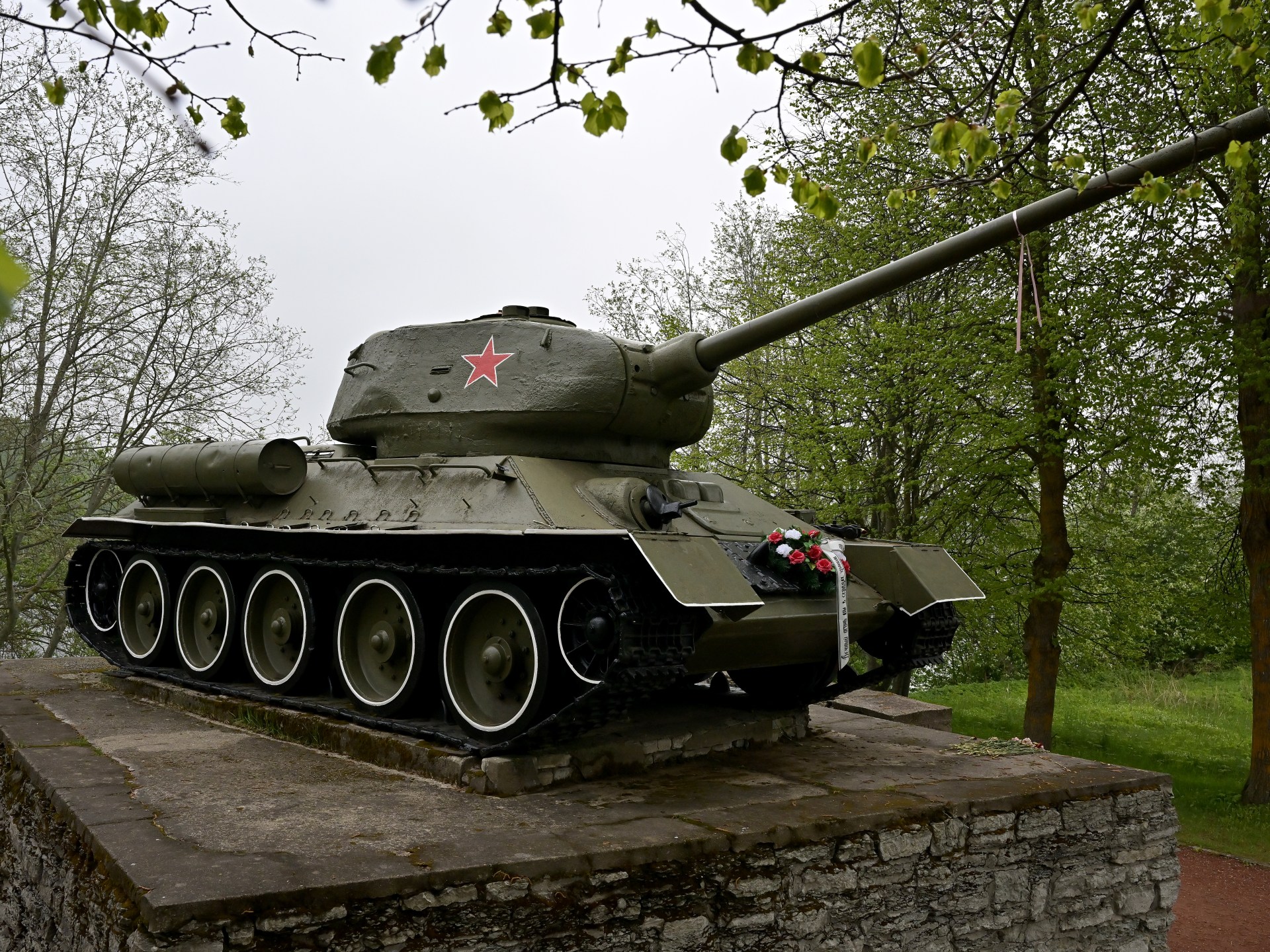Estonia removes Soviet-era statue amid tensions
PM says statue removed from a largely Russian-speaking city to ensure ‘public order’ amid ‘increasing tensions and confusion around memorials’.
Estonia has removed a Soviet-era World War II memorial from Narva, a large Russian-speaking majority city, accusing Russia of using such monuments to stir up tensions.
Prime Minister Kaja Kallas said in a statement that the move was a response to “increasing tensions and confusion around memorials in Narva”.
“We must act quickly to ensure public order and internal security,” she said on Tuesday.
Local opposition to removing the monument had sparked fears of a repetition of the rioting that broke out in Tallinn in 2007 due to the removal of a Soviet monument.
A World War II-era T-34 tank that formed part of the memorial in Narva will be taken to the Estonian War Museum and a mass grave of wartime victims will instead be given a “neutral grave marker”.
Narva’s mayor Katri Raik had previously refused to hand the tank over to the museum.
The memorial is a focus for annual Victory Day commemoration ceremonies in the city and Narva city council had failed to reach a decision about the removal of the monument despite a government order to do so before the end of the year.
Foreign minister Urmas Reinsalu said Russia was trying to exploit “internal divisions” in Estonia.
Kallas said, “We will not afford Russia the opportunity to use the past to disturb the peace.”
Interior minister Lauri Laanamets said it was “in the interests of public order and internal security to remove the monuments in question before a further increase in tensions around them”.
The Baltic states of Estonia and Latvia both have large Russian-speaking minorities that are sometimes at odds with the national governments.
There have been concerns that Moscow could seek to exploit these differences in order to destabilise the countries, which are both EU and NATO members.
Narva, whose 57,500 inhabitants are chiefly Russian speakers, is about 210 kilometres (130 miles) east of Tallinn and separated from the Russian town of Ivangorod by the Narva river.
Russian officials have criticised Estonia’s drive to remove remaining Soviet-era monuments.
“We find this outrageous. A war with a common history, getting rid of monuments for those who saved Europe from fascism, of course, is outrageous. This does not make any nation look good, including Estonia,” Kremlin spokesman Dmitry Peskov said earlier this month.
Earlier this month, Estonia decided to bar people from neighbouring Russia with tourist visas from entering the northernmost Baltic country as a consequence of the war in Ukraine.
The European Union, of which Estonia is a member, already has banned air travel from Russia after Moscow invaded Ukraine on February 24. But Russians can still travel by land to Estonia and apparently take flights to other European destinations.




